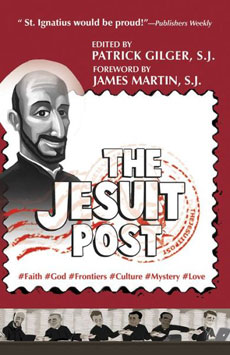From the essay "The Tyranny of Possibility and the One Thing Wanted: Freedom, Commitment, and the Duty of Love" by Brendan Busse.
"Choice is a risky proposition. We may wander sometimes in the desert of our freedom. Like the Hebrew slaves liberated from Egypt, we may even wonder whether we were better off before our wild choice to flee — before we decided to trust that stuttering orphan Moses, before we saw the pillar of fire and the walls of water and all those drowned charioteers, before our living in the midst of those cruel plagues in which we found strange comfort. This is just to say that we may forget the hunger we knew before because of the thirst we carry with us.
"But it's only the dead who live without hunger or thirst. To desire is to live. To choose is to become. To commit is to love. Egypt, like Sinai, was a desert, too. In one we were slaves and in the other we suffered for the love of our choosing. We failed a hell of a lot, but we practiced. We're still practicing.
"On the other side of the dangerous desert of commitment lies the promised land, the only thing that really matters: the life you're given to live, the one that's yours. To avoid choice and commitment is to pretend to be something, anything, everything other than who you are. But to find your way toward that other side is to become more and more yourself and less and less the swirl of possibilities from which you arose. You came out of the mud of potential but to become the one you are, to do the thing you want, to will the one thing; you must become what this world needs in order to continue. You must become loving.
"On a recent flight, I found myself gazing out of the window of the plane. Between one experience and another I found myself at peace in that particular place. A stillness filled me as I sailed hundreds of miles an hour through the blue sky. I asked myself that question: What's the one thing wanted? I could hear something deep inside of me express the desire for nothing more than what I had, to be nowhere other than where I was. My dry eyes thirsted for only that moment: for the clouds and those farms, for the mountain peaks and that distant horizon.
"Like the Hebrews wandering in the desert I looked down upon that place; it could have been any place. I saw the promised land. I knew one thing: The land has been promised to us but we must choose to live there. Otherwise we're just pillaging wanderers, never responsible, never at home, forever enslaved. We must want to live in that land. The one thing wanted must be our God. The will to one thing ought only to be our duty to love."
